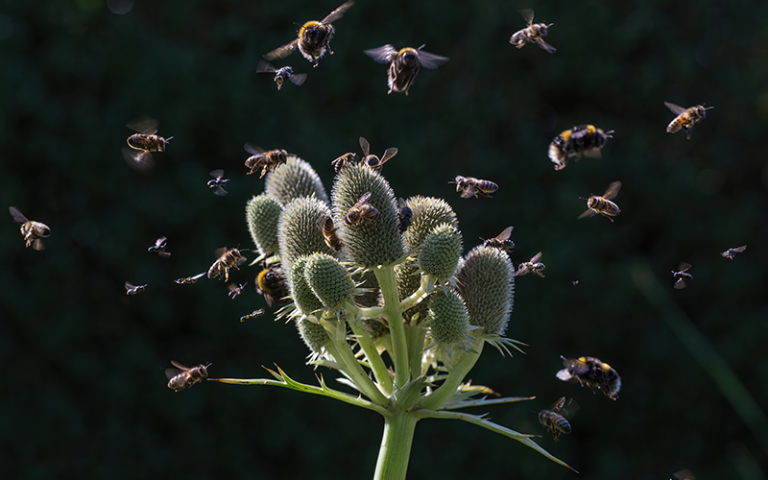Valuing nature in government decision-making
Research co-led by Professor Georgina Mace developed a way of valuing ecosystems and natural capital as part of decision-making processes - for example shaping the UK’s 2020 Environment Bill.

12 April 2022
Landscapes generate a wide range of valuable ecosystem services, without which economic and social development would not be possible, yet land-use decisions by governments often ignore the value of these natural ecosystems.
To address this, Professor Dame Georgina Mace (1953-2020) co-led UCL research in collaboration with economists. The team developed new ways to incorporate natural capital (stocks of renewable resources, such as plants and animals) and valuation of ecosystem services into decision-making.
A classification of natural assets
The analysis demonstrated that instead of viewing conservation measures as an add-on cost in land use, their overall benefits to society return that cost many hundreds of times over. Furthermore, the research demonstrated that failure to incorporate economic valuation of natural capital would lead to short-term growth and social injustice.
Professor Mace and her colleagues developed a classification of natural assets and a list of UK ecosystems that were most at risk of degrading. Their research helped lead to a series of recommendations to the UK Government for targeting ecosystem restoration projects to reverse this decline, such as restoring woodland, conserving marshland and protecting peat bogs. They also summarised their approach in widely-available methodological resources for economists.
A direct impact on UK and international policy making
Professor Mace sat on the UK Government’s Natural Capital Committee between 2012 and 2018, providing independent advice to the government in collaboration with economists on the sustainable use of natural capital. Professor Mace led the ecological aspects of the work. Her research prompted the National Environment Research Council to fund the Valuing Nature Network (VNN) a five-year, £6.5 billion programme with over 2,000 members by NERC to grow research capability.
Her research has had a significant direct impact on UK and international policy making. The cross-sector Natural Capital Coalition (NCC) was founded in the UK and has become the global leader in mainstreaming natural capital approaches in the private sector, with over 370 leading organisations engaged.
As part of the NCC management team, Professor Mace’s research provided a framework to ensure a direct flow of evidence from the VNN to government, resulting in policy changes at Defra, DECC (Department of Energy and Climate Change) and BEIS (Department for Business, Energy and Industrial Strategy). The Defra ‘Ecosystem Markets Task Force,’ was established to advise the UK Government on opportunities for UK business to expand green goods, services, products, investment vehicles and markets which value and protect ecosystem services.
Defra’s 25 Year Environment Plan for England, launched by the Prime Minister in January 2018, highlighted six target outcomes for society which directly trace back to Professor Mace’s risk register work. Julian Barlow, deputy head of land-use policy at DEFRA, has commented that “At the heart of this 25 YEP [Year Environment Plan] is the natural capital conceptual framework and metrics developed by Professor Mace.”
To implement the 25 YEP two new Government bills were developed in Defra: the Agriculture Bill and the Environment Bill. These have replaced the European Common Agricultural Policy, and incentivise landowners to secure non-market goods of high public value in the landscape
Research synopsis
Valuing nature in government decision-making
Loss of biodiversity and damage to ecosystems is a major global challenge. Yet as long as the economic value of nature is unknown or uncounted, biodiversity can’t be included in decision-making processes and is treated as if its loss does not incur immediate costs and risks. Research co-led by Professor Georgina Mace has helped develop a way of valuing ecosystems and natural capital. This research has shaped key components of the government’s ‘25 Year Environment Plan’ (2018) and the 2020 Environment Bill, which will help ensure the long-term security of biodiversity and natural assets.
Links
- Tribute to Professor Georgina Mace
- UCL Division of Biosciences
- UCL Faculty of Life Sciences
- UCL Faculty of Life Sciences REF 21
Image
- Image credit: iStock / grandaded
 Close
Close

